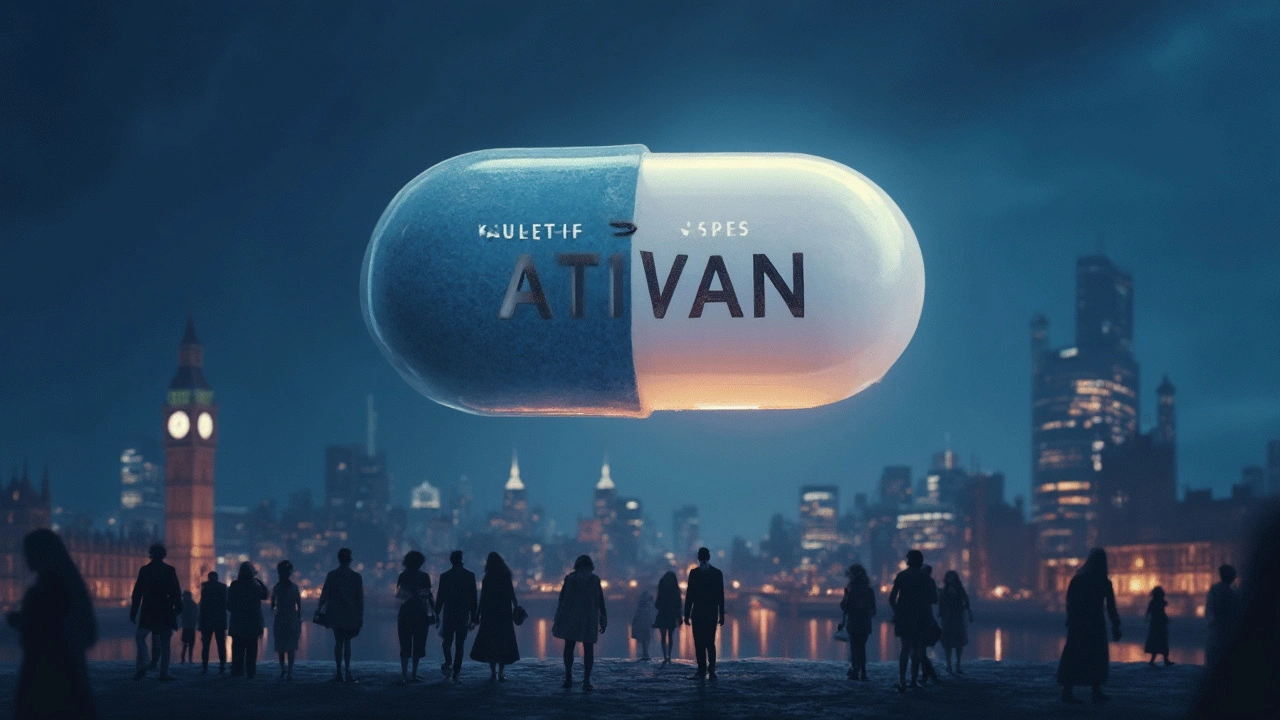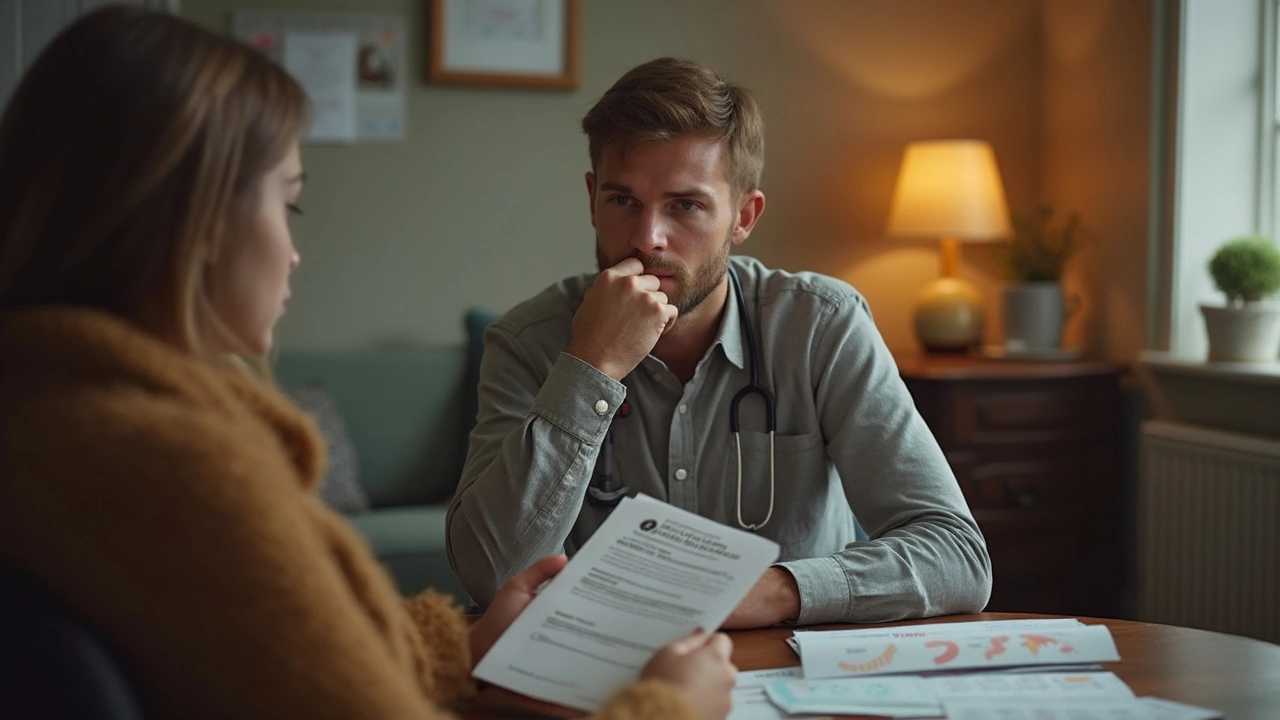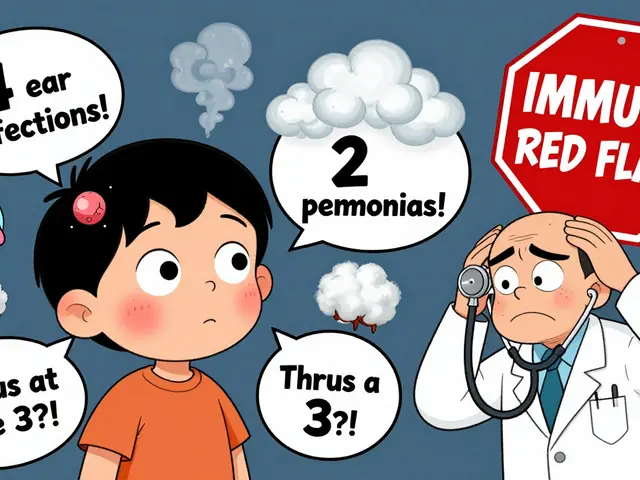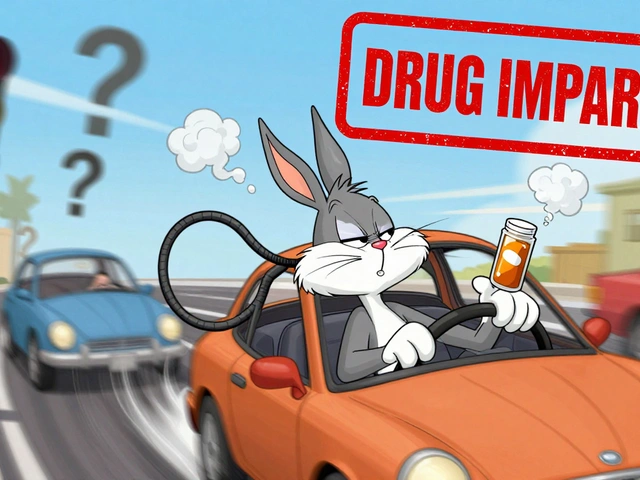Ever felt your mind spinning like a hamster wheel at 3 a.m.? Or maybe your muscles get tighter than a coiled spring right before a big presentation. For many people, moments like these aren’t one-off events—they're daily battles. That’s why doctors might bring up a little white pill called Ativan. This drug sits at the intersection of hope, concern, and strict caution. If you or someone close has ever been handed a prescription for Ativan, you probably have big questions: What does it actually do? Is it truly safe? And why does everyone from your aunt to Hollywood rehab stories talk about it like it's both a miracle and a menace?
What Ativan Actually Is and Why Doctors Prescribe It
So, let's cut to the chase. Ativan is the brand name for lorazepam, and it belongs to a group of drugs called benzodiazepines. This isn’t the stuff you reach for like Tylenol—it’s reserved for heavier situations. Ativan works by calming down your brain and nerves through a chemical called GABA. GABA acts as your body's built-in brake pedal for anxiety and stress. When Ativan steps in, it floods the brain with more GABA action, so things slow down: racing thoughts chill, the jitters fade, and your muscles literally relax.
This sedating power is why Ativan is often prescribed for sudden bouts of panic attacks, anxiety that won’t quit, or even for short-term help with sleep issues when stress is through the roof. Hospitals love it for calming people before surgery or complicated procedures—you really don't want your blood pressure spiking on the operating table. Ativan can also be a lifeline for people detoxing from alcohol, thanks to its ability to prevent seizures and dangerous withdrawal symptoms. According to a 2023 hospital audit in Boston, lorazepam remained the #1 benzodiazepine administered for in-patient alcohol withdrawal, beating out older cousins like diazepam because it works fast and reliably, even in folks with liver trouble.
But the thing is, Ativan isn’t just for emergencies. Some psychiatrists write scripts for folks dealing with relentless anxiety that eats up daily life. The catch? Even these doctors emphasize that Ativan is usually a short-term helper, not a forever friend. Why? Because the body and brain adapt quickly—think of it like your favorite caffeinated drink; after a while, you need more to feel the same buzz, only in Ativan’s case, it’s dangerous to up the dose without medical supervision.
Here’s a fun (and slightly alarming) science tidbit: There was a study in 2022 looking at new Ativan prescriptions for anxiety. After just four weeks, almost 25% of users felt the effects drop off—a sign of tolerance growing fast. That’s why most doctors write the smallest script possible, watch closely, and talk early on about exit plans. Having a plan is a big deal when it comes to these meds.
To get practical, Ativan usually comes in tiny doses: 0.5 mg, 1 mg, or 2 mg tablets. Some people get it in injectable or liquid form at the hospital. The action starts within 20-30 minutes and lasts 6-8 hours. Compare that with similar drugs like Xanax, which kicks in just as fast but wears off quicker, sometimes creating a rollercoaster of anxiety back-and-forth.
Handy tip if you're ever using Ativan as prescribed: always double-check what other meds you're taking. Mixing Ativan with anything that depresses your nervous system—like opioids, sleep drugs, or even alcohol—can slow your breathing and reflexes more than you’d expect. In America, warnings about these combinations aren’t just legalese; real-world ER records show that almost 60% of dangerous Ativan-related incidents involved another sedative or alcohol.
So, when is Ativan right for you? Doctors weigh your symptoms, your other health issues, and what you've tried before. It isn't a first choice for chronic worry, but for storms of panic, terrible sleep you simply have to fix for a few days, or calmed nerves before surgery, it’s hard to beat. Just remember, fast action comes with some serious disclaimers.

Side Effects, Risks, and What People Get Wrong
With any powerful tool, you get big benefits—and some big concerns. Ativan isn't a blank check. Sure, plenty of folks take it exactly as prescribed, stick to short courses, and have no drama. But there's a reason pharmacies slap warning labels on the bottle, and doctors are a bit tight with their refills.
Let’s get into the nitty-gritty. The most common side effects of Ativan look mild on paper: drowsiness, dizziness, less coordination, and a fuzzy-headed feeling that can last several hours. The catch? Even typical side effects can mess with your everyday life—a 2024 survey of patients using Ativan for just a week found 70% reported daytime sleepiness that interfered with driving, school, or parenting.
But here’s where things escalate. At higher doses, or when taken with booze or opioids, Ativan can slow your breathing, your heart rate, and your reaction time until you’re basically out of commission. For people over 65 (or anyone with slower liver function), these risks go up dramatically—falls, confusion, and memory problems are the big headlines here. In fact, the CDC published stats last year showing that more than half of ER visits involving people over 65 related to sedative drugs included Ativan or another benzo.
| Side Effect | Estimated Prevalence (%) |
|---|---|
| Drowsiness | 65 |
| Dizziness | 27 |
| Foggy memory | 14 |
| Daytime fatigue | 70 (in short-term users) |
| Falls (in elderly) | 32 (in seniors using regularly) |
Even when you stick to the dose, some folks notice mood swings—feeling revved up or snappy in between doses—especially if the brain starts to expect the med daily. Some rare users get the opposite effect: not calm, but revved up or confused. This is more likely in older adults or those with brain injuries. Flashbacks, weird dreams, and even hallucinations do make the occasional appearance, too.
Dependence and addiction are what send shivers down most people’s spines. The medical term is "benzodiazepine use disorder." It basically means your body comes to rely on Ativan to function, and stopping suddenly is like slamming on the brakes—cue racing heart, shaking, sweating, and a rebound of anxiety that can be way worse than before. That’s why quitting Ativan usually means working with a doctor, tapering down tiny steps at a time—sometimes over months.
So why do so many people get tripped up? Two big myths keep circulating: first, that Ativan is "safer" than older tranquilizers and you don’t have to worry as much. Second, that it’s fine to use as a long-term bandage for everyday stress. Neither is true—surveys from 2023 showed that long-term users were four times more likely to need ER visits for withdrawal or side effects compared to those who stuck to a couple of weeks.
There are even misconceptions about how Ativan interacts with street drugs or other prescriptions. Mixing Ativan with opioids like fentanyl or oxycodone can be fatal, and yet between 2017 and 2022, more than 30% of opiate overdose fatalities in the US included a benzo like lorazepam.
Where Ativan can be a real lifesaver—like stopping a panic attack before a big event or helping an ICU patient finally rest—it comes with this big, hard truth: you have to respect its power. Knowing the warning signs—like sudden mood changes, coordination problems, or the urge to take more—goes a long way in staying safe.
If you’re ever unsure, here’s a quick checklist experts recommend before using Ativan:
- Have you told your provider ALL other meds or supplements you use?
- Did your doctor explain how long you should stay on it—days or weeks?
- Do you know who to call if you get new or worsening symptoms?
- Have you been warned about mixing it with alcohol? (That means NONE!)
- Do you know how to taper off—never just stop cold turkey?
There’s a reason Ativan still finds its way onto the WHO’s Model List of Essential Medicines—it can be invaluable when used wisely, but it demands your attention at every step.

Tips for Safe Use, Real Stories, and Alternatives
Now for the good stuff. Handing over power to a tiny pill is always a little unsettling, but there are ways to keep things in your control, even when life throws curveballs. The number one rule: talk openly with your doctor about timing, dosage, and your exact reason for using ativan. On day one, ask about the exit plan. That might sound paranoid, but it can mean the difference between short-term relief and long-term dependence.
Plan your dosing for moments when you’re really stuck. If panic hits before an MRI, a short flight, or a big court date, taking Ativan there can make sense. Trying to use it day in and day out to squash background stress? It’s just not built for chronic use. Most anxiety isn’t about one spike; it’s about persistent patterns. This is where therapy—especially cognitive behavioral therapy—outperforms medication hands down, according to a 2024 Yale review. Combining short-term Ativan with talk therapy is far more likely to reduce relapse than Ativan alone, especially for generalized anxiety.
- Always use the lowest dose that works. More isn’t better. If one dose doesn’t help, don’t double up without your doctor.
- Set an alarm or reminder for your dose. Forgetting and taking another can lead to accidental overdose, particularly with memory issues or at night.
- Avoid grapefruits or grapefruit juice—this fruit can actually increase Ativan levels in your blood, making side effects worse. No joke, this food-drug interaction confuses a lot of people every year.
- Store confident, locked, and out of kids’ reach. Accidental intake is far too common—one 2022 poison control report logged 900+ calls about pediatric Ativan overdoses. Most came from misplaced bottles after travel.
Want a shortcut for telling if you’re developing dependence? Look for cravings, taking your pill earlier than scheduled, or feeling "off" without it. If you ever notice these signs, bring them up with your provider immediately.
Alternatives exist, too. For sleep, doctors sometimes prefer melatonin, trazodone, or antihistamines. For day-to-day anxiety that doesn’t need immediate action, SSRIs and SNRIs are safer long-term bets—they’re not quick, but they build up over weeks and don’t carry the same dependence risk. Some folks get great mileage from meditation apps, breathing exercises, or even old-school exercise. The key is using Ativan as a single tool in a big toolbox, not the only solution.
Real talk? Plenty of people have used Ativan to get through hellish nights and made it safely to the other side. I talked to a firefighter who uses it only before flights: "I know myself. If I use it two days in a row, I get groggy, so I just keep it for the one time a year I actually need it." A friend with breast cancer relied on it after surgery and a fierce run-in with chemo panic: "It’s a reset button. A few days, then it’s back in the medicine cabinet." The folks who get in trouble are usually those who start thinking, "Why not try it just to sleep?" or "One extra can’t hurt." Smart boundaries, close check-ins, and honest conversations with your doc keep things from crossing that invisible line.
It’s easy to see Ativan as either a hero or villain, depending on the story. The truth lives in the middle. Used smartly—it can give you your life back in the right moment. Just respect its power, understand the short-term fix it offers, and don’t be afraid to ask questions until you feel sure. Armed with facts, you’re way ahead of the curve.





Dan Burbank
July 19, 2025 AT 23:41Oh boy, Ativan, huh? The quintessential quick fix for anxiety but let’s not kid ourselves—this stuff is no joke and definitely not a miracle cure. It’s prescribed like candy nowadays, but folks rarely hear about the slippery slope of dependence it can spawn. Sure, it calms the nerves fast, but have you ever stopped to think about what’s happening in your brain or how it totally screws with your natural coping mechanisms? I mean, the article does a decent job laying down the facts, but in typical fashion, people still treat it like some harmless shortcut instead of a serious pharmaceutical with grave consequences.
Also, the statistics on side effects and addiction? Clearly underemphasized in most mainstream discussions. So if you’re considering Ativan, please, don’t jump on it without a thorough breakdown of risks vs. benefits. It’s your mental health after all. And doctors, while wonderful, aren’t infallible; question, do your research, and demand follow-ups.
Anna Marie
July 22, 2025 AT 18:21I appreciate the straightforward tone this post uses — it really helps demystify Ativan in a way that’s both accessible and respectful to those who might be feeling overwhelmed. Anxiety is such a personal challenge, and to have clear information on the potential side effects and risks means a lot. It’s a reminder that medication should be just one tool in a larger toolkit involving therapy, lifestyle adjustments, and support systems.
Plus, the note about consulting your healthcare provider for individual guidance is so important. Each person’s circumstances are unique, and what works for one might not work for another. It fosters a much-needed dialogue centered around safety and informed consent.
Abdulraheem yahya
July 25, 2025 AT 10:14Reading through this, I feel compelled to add a perspective from where I stand. Anxiety and stress are universal, and while medication like Ativan can be effective, the cultural context in which people use it varies widely. In some communities, the stigma around mental health makes reaching for any treatment difficult, let alone something with the possibility of addiction. So information like this guides not only individuals but also caregivers and families in navigating complex emotions and decisions.
That said, I really like that the article is no-nonsense and addresses lesser-known facts. Ignorance isn’t bliss here; it can be dangerous. Educating yourself about how Ativan works and the practical safety tips can empower people to take control of their health journeys rather than becoming passive recipients of prescriptions.
Preeti Sharma
July 28, 2025 AT 04:54Hmm, I’m a little skeptical about the whole glorification of pharmaceutical solutions like Ativan. Don’t get me wrong, it has its place, but I can’t help but wonder if relying on such meds is another layer of masking what lies deeper psychologically and existentially. Anxiety isn’t simply a chemical imbalance to be zapped away; it’s entwined with how we interpret our existence and fears.
The article skips over the philosophical dimension, focusing instead on clinical facts and safety—important, yes, but reductionist. We might gain a short reprieve from symptoms, yet what are we sacrificing in terms of authentic experience, growth, and resilience? Just a thought to add to the mix.
Ted G
July 30, 2025 AT 20:47Here’s the thing nobody’s pointing out loudly enough: the pharmaceutical industry’s hands in pushing meds like Ativan. It’s not just about your well-being, it’s about profit margins and locking consumers into dependency. People should really be cautious about overprescription and ask tough questions. Like, who stands to gain when Ativan becomes the go-to solution?
And what about long-term users? Withdrawal symptoms and addiction are brushed over as minor inconveniences when in fact they can wreck lives. I demand transparency and accountability from both doctors and drug manufacturers because this goes way beyond just ‘safety tips.’
Miriam Bresticker
August 1, 2025 AT 06:07this article is informative but i wish it included more personal stories or experiences 😭 it’s easy to get lost in the stats and clinical jargon, y’know? like, i’ve been on ativan a bit and while it helps with my anxiety, sometimes it makes me feel super groggy like i’m dragging a boulder 💀 and i didn’t know about some of the addiction risks until after starting. it’s good that stuff is mentioned here tho 🥹
also lol i caught a few typos but no biggie! can we have a section pls on how to talk with your doc about tapering off tho? that’s scary af
Claire Willett
August 3, 2025 AT 13:17Quite an incisive compendium on Ativan. The balance between efficacy and risk is always a fine line. As a coach who often deals with clients facing anxiety, I consistently advocate for a multi-modal approach. Pharmacotherapy should never operate in isolation but be complemented by cognitive-behavioral strategies, mindfulness, and perhaps even novel neuromodulatory techniques when warranted.
What stands out is the emphasis on patient education and the beneath-the-radar facts that many clinicians might gloss over. It’s imperative that patients grasp the nature of Ativan's pharmacokinetics and dependency profiles — not just fleeting side effects.
Keli Richards
August 4, 2025 AT 06:21The post covered all the basics well enough, but I was hoping for more on the alternatives. I get that Ativan is useful, but what about non-benzodiazepine treatments or therapy modalities? There seems to be a heavy leaning towards the medication aspect without enough nuance around the whole mental health landscape.
And safety tips—I wish there was a deeper dive into monitoring protocols and red flags for when things might be going sideways during treatment.
Ravikumar Padala
August 6, 2025 AT 19:27Honestly, after reading this, I’m not so sold on Ativan. I’ve heard from people who took it that it sometimes feels like you’re trading one problem for another. I guess it works fast but is it really worth risking dependence? Sometimes it feels like these meds are just a quick fix for complex problems that need more patience and understanding.
Couldn’t the post have included more on lifestyle changes or coping mechanisms? The human mind isn’t something you can just sedate away. This whole thing makes me a bit weary of big pharma’s role in anxiety treatment.
King Shayne I
August 9, 2025 AT 16:54Let me just say, this whole Ativan topic is a slippery slope and people need to be careful. I’ve seen way too many stories where folks start feeling better, then suddenly they’re hooked and the docs are all hands-off when it comes to withdrawal. Not cool.
If you’re taking Ativan, keep a firm grip on your use, don’t let anyone rush you into prolonged use, and always stay educated. Never assume it’s a safe long-term plan.
jennifer jackson
August 14, 2025 AT 21:54It’s encouraging to see a post genuinely shedding light on both benefits and risks. Anxiety is a beast we need to tackle with a full arsenal and not just meds. I recommend that anyone considering Ativan balance it with wholesome self-care, counseling, and community.
We all deserve to find peace and relief but safely and thoughtfully. Here’s to more open, honest conversations that empower rather than scare. Keep sharing this kind of clarity; it’s much needed.